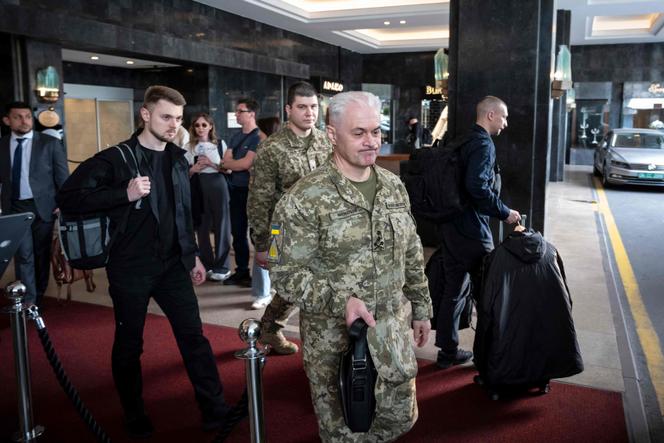

It took less than two hours in Istanbul, on Friday, May 16, to come to the conclusion that the direct negotiations between Ukrainians and Russians, the first since unsuccessful talks in April 2022, were a failure. This outcome – despite it leading to an agreement to exchange 2,000 prisoners – was anticipated.
These negotiations were effectively an avoidance tactic. Vladimir Putin had suggested them as a diversion, after a proposal for a 30-day ceasefire was put forward at a summit in Kyiv, which featured key European leaders who gathered to support Volodymyr Zelensky. Under pressure from Donald Trump, Zelensky took Putin at his word, challenging the Russian leader to come and meet him in Turkey. Moreover, Trump had not ruled out that he might come and join the two presidents, seizing the opportunity of his diplomatic tour of the Arabian Peninsula, if such a summit materialized.
By, in the end, refusing to travel to Turkey, and instead opting to send a lower-ranking delegation, Putin nonetheless served a useful purpose. He demonstrated that he had no interest in discussions aimed at ending the war he started, a war in which he believes, not without reason, that he is in a position of strength. This was precisely what the Ukrainian president had explained in the Oval Office of the White House on February 28, during a tumultuous reception in which he was publicly humiliated by his American counterpart and, above all, by the vice president, JD Vance.
Logically, this should lead Trump to draw conclusions from the failed meeting in Istanbul and the weeks that led up to it. Unreservedly aligning with the aggressor's positions at the victim's expense has, so far, yielded no results. Entrusting this complex issue to his envoy, the completely inexperienced diplomat and wealthy real estate developer Steve Witkoff, has also proven to have limits. On his social network, Trump, the president of the world's leading military power, even exposed himself to ridicule on April 24, vainly imploring the Kremlin leader to end the indiscriminate shelling campaign that continues to kill dozens of Ukrainian civilians.

To extricate the White House from this embarrassment, Republican Senator Lindsey Graham of South Carolina has advocated that "devastating" new sanctions are needed, aimed at depriving Russia of the oil revenue that funds the war, if the Kremlin continues to reject the prospect of peace negotiations. This is not the only method the US President has available to him, as he could also complicate Russia's position on the ground by resuming arms deliveries to Ukraine. The European Union, which has engaged in this effort to a degree commensurate with its limited means, has targeted the "ghost fleet" that Russia uses to circumvent sanctions that target some of its oil exports.
However, such an about-face is not guaranteed. It would force the White House to acknowledge that its vision, which has cast Ukraine and the EU, rather than Russia, as the source of all problems, is incorrect. On Thursday, May 15, Trump declared, "nothing will happen" on Ukraine as long as Putin does not meet with him, but he carefully avoided stating what his plan to end the fighting, if such a Russia-US summit were to occur, would be.
Translation of an original article published in French on lemonde.fr; the publisher may only be liable for the French version.
